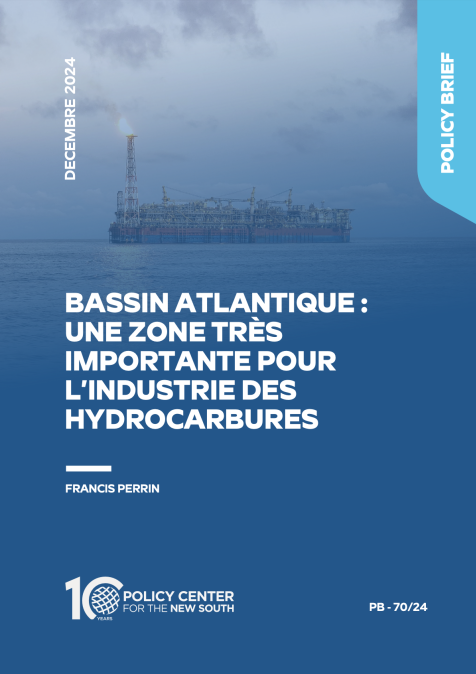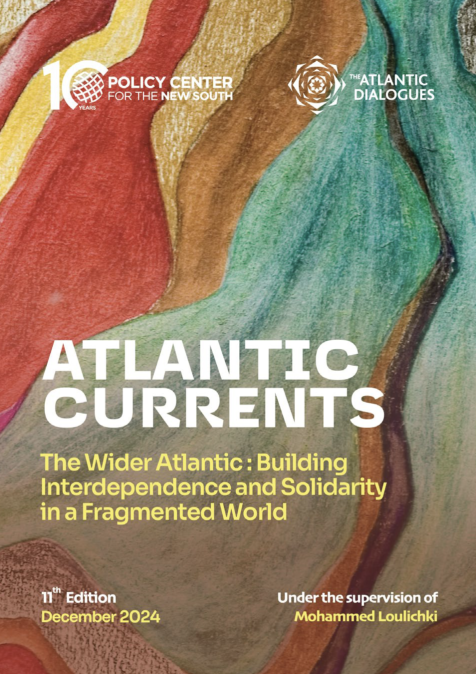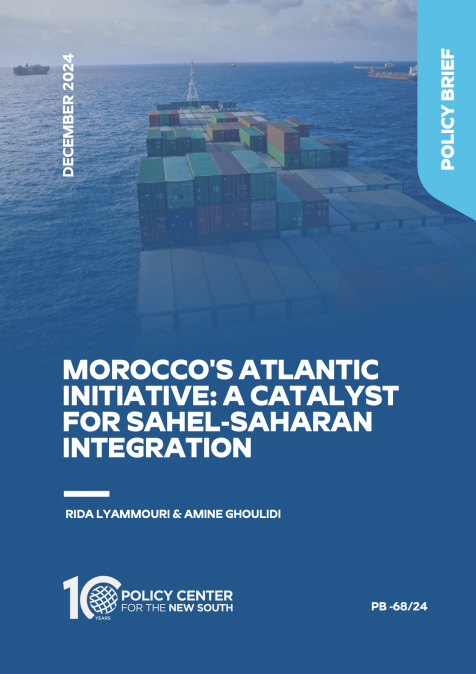Publications /
Opinion
Born in 1984 in Peru and trained as a scientist, Clarissa Rios Rojas has a PhD in molecular biology, but also a clear taste for exploring beyond her field to see the bigger picture.
She is since March 2020 a Research Associate at the Center for the Study of Existential Risk, launched by the Cambridge University in the United Kingdom. “The Center is very multi-disciplinary, with philosophers, astronomers, lawyers, economists, and educators, working on the management of global catastrophe risks such as a human-engineered pandemic, she explains. It could be a nuclear war, the impact of an asteroid hitting Earth, bio-threats or climate change. Anything that could decimate humanity with little chance to recover”.
Her team is working on ways to prevent such risks or mitigate them. Her specific role is to “be the bridge between research and policy makers, finding innovative policy solutions and an international framework for governments to manage extreme natural, technological or biological risks”.
She participates in workshops organized with different inter-regional stakeholders, such as the United Nations or the International Network for Government Science Advice, among others, and policymakers around the world.
She has started in her new position in the middle of the Covid-19 pandemic, a perfect example of why it is so important to think about the future and start to change policies now. The pandemic still has a “snowball effect” of shutting many systems one by one in many countries: the health system, food security, trade, tourism, airlines.
Expansion of knowledge
Very early on in her life, she has looked for opportunities to grow. Firstly, she decided to leave Peru for Finland, where she would study with a scholarship. “I did not even knowi where Finland was at that point”, she recalls with a smile, “people would think I was going to the Philippines or Philadelphia, none of my friends heard about Finland before”. She studied for one year in Turku and ended up being hired for another year to work in a laboratory.
Then, through what she describes as a “chain of events”, she went to Sweden to get a Master in Biomedicine, worked in Germany for Evotec, a pharmaceutical company searching for a drug in neurodegenerative diseases. There, she developed a passion for XX and XY (male and female) chromosomes and looked for a leading laboratory to uplift her skills. She found it in Brisbane, Australia, where she got her PhD in Development Molecular Biology in June 2017. What would be the next step ? “Going to the Moon”, she laughs. She loved her Australian experience, “being so far away and surrounded by nature and amazing landscapes”.
At the same time, she launched Ekpa’palek, an NGO helping Latin American students develop professionally, through a digital platform that offers free professional mentorship opportunities, taking on a mentor role there and convincing her friends to join her. She kept on expanding her knowledge, this time on international development and politics. That’s why she applied to the Atlantic Dialogues Emerging Leaders (ADEL) program in 2016. “Coming to Marrakesh was my first step out of science, encouraging me to attend later different conferences on science diplomacy and make presentations on international development. At the same time, I realized that some topics related to emerging technologies were a threat, like the edition of genes and the first genetically edited babies, born in China in October 2018, raising huge ethical questions. This called my attention to finding a place that would encompass science and policy advice”.
Clarissa Rios Rojas has already achieved a lot in her life. She describes her profile in her Curriculum Vitae as “a scientist with experience working at an agency from the Ministry of Environment in Peru, the European Commission and the Geneva Centre for Security Policy, providing science-based evidence and advice for policymaking. She also has experience as an Eisenhower Fellow, a UN Women champion for women's economic empowerment, a UNESCO delegate, an Emerging Leader at the Atlantic Dialogues, a Fellow at the Asian Forum for Global Governance/Raisina Dialogues, a newspaper collaborator, an advisor at Women Economic Forum and as a co-lead of the Science Advice working group at the Global Young Academy”.
Empathy, a personal engine
She has also written many scientific articles and received awards (Exceptional Women of Excellence at the Women Economic Forum in the Netherlands, 2018). She has followed policy-making training in Japan, Bosnia and Herzegovina, Switzerland, India, Germany and Jordan, and got herself doing presentations in conferences all over the world, from Thailand to Chile, passing through Cairo, Geneva, Kigali and Copenhagen. She describes herself as “persistent, curious and empathetic – a quality that is worryingly lacking in many well-educated people, who don’t care much about the rest of the world.”
Her dream ? “If human beings would be empathetic with each other, a lot of problems would be resolved. This is the best thing I could see in my life. We need to teach empathy at different levels within the education system and at work to let us become more human. There must be a way.”
The famous novel 1984, by George Orwell, is her favorite book, and she also likes The Fifth Season (2016), a fiction about earthquakes and science written by N. K. Jemisin, an African-American female author. She sees her parents and friends as her main role models and source of inspiration. “My father is a technical engineer at animal farms, who taught me persistence. My mother a scientist, teaching at the National University in Peru taught her about women empowerment. She didn’t want me to be to become a biologist, thinking it would not be a good career choice if I was ending up being as badly paid as her. But in the end, she supported me and here I am…” As for her friends, she likes to be in tune with “optimists working on the reduction of inequalities, women empowerment and who think about the future”. In short, some of her own reflections.
You can consult Clarissa Portrait along with others on the ADEL Portrait page







